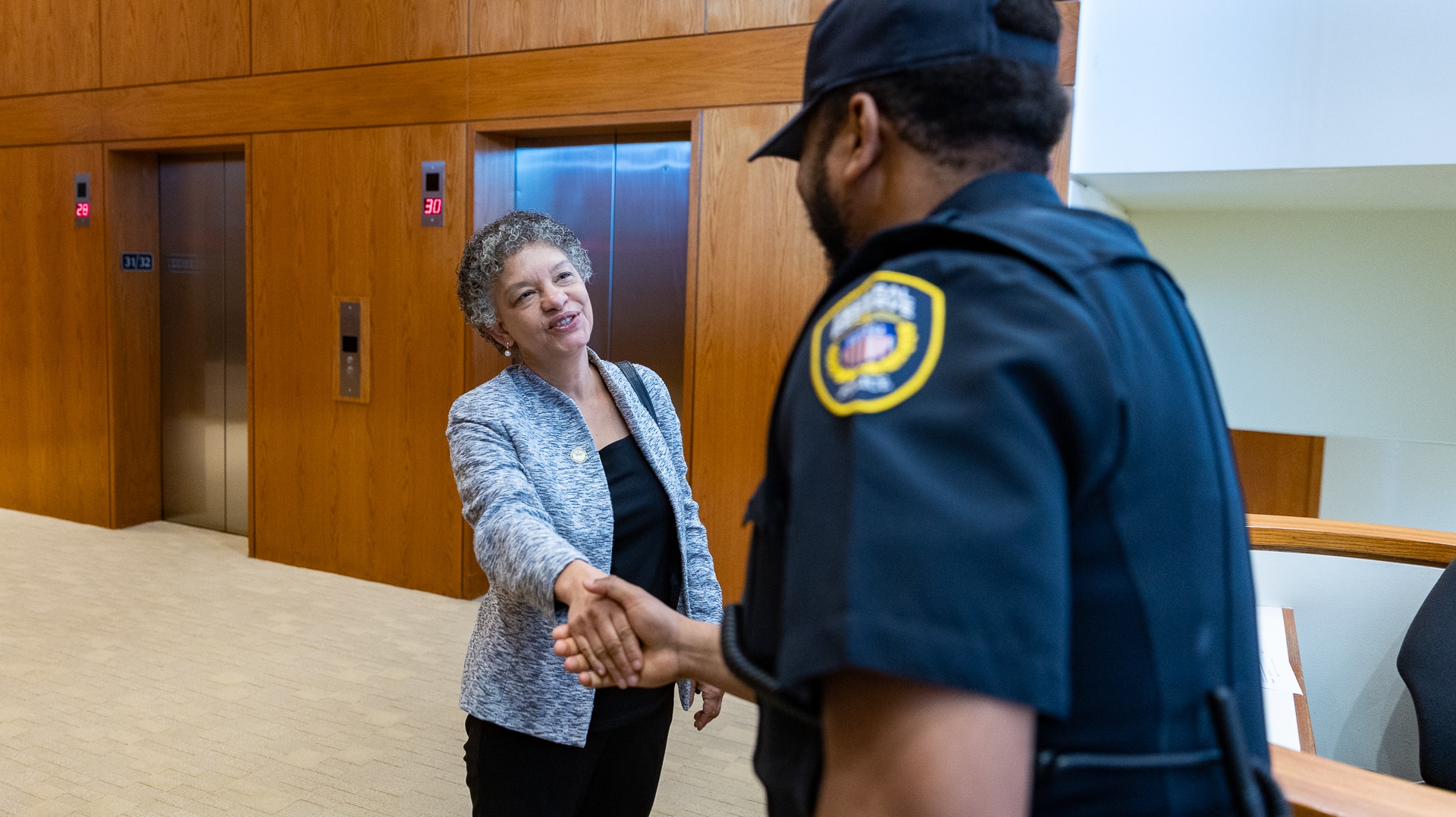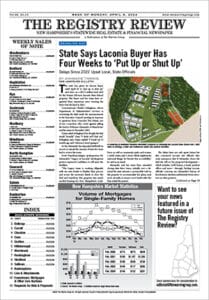
Susan M. Collins shakes hands with a security staff member at the Federal Reserve Bank of Boston in this undated handout photo. Photo courtesy of Federal Reserve Bank of Boston
Susan M. Collins began her tenure this month as the Federal Reserve Bank of Boston’s new president and CEO.
The 14th top leader in the Boston Fed’s 108-year history, Collins is the second woman and the first person of color to hold the Boston Fed’s top job, the Boston Fed said in a statement.
“I’m honored to take on this new role and the tremendous responsibility it carries, especially at such an important time for the U.S. economy,” Collins said in the statement. “I’m eager to join my colleagues in the analysis of the critical policy issues for the Fed and the economy.”
Collins is now a voting member of the Federal Open Market Committee, the monetary policymaking body of the Federal Reserve System, for the remainder of 2022. She will attend her first FOMC meeting on July 26. Federal reserve bank presidents vote as part of the FOMC on a rotating schedule.
The Boston Fed began searching for a new president and CEO after Eric Rosengren resigned in September 2021, citing a longstanding health condition. Rosengren had been slated to retire last month when he reached age 65, the mandatory retirement for federal reserve bank presidents. His retirement also came after news reports showed that Rosengren and then-Dallas Fed president Robert Kaplan had engaged in stock trading during 2020 which raised ethics questions.
An international macroeconomist with an interest in the impacts of policy on living standards, Collins had been appointed to her new role in February following the search, which was led by the non-banker members of the Boston Fed’s board of directors and approved by the Federal Reserve System’s Board of Governors.
Collins had spent 15 years at the University of Michigan, most recently as provost and executive vice president for academic affairs. Before that, she was dean of the University of Michigan’s Gerald R. Ford School of Public Policy as dean. She has a doctorate in economics from the Massachusetts Institute of Technology and a bachelor’s degree in economics from Harvard University.
Her published research has focused on the determinants of economic growth and exchange rate regimes, and the implications for economic performance, the statement said. The Boston Fed added that she has also researched the implications of global integration for U.S. labor markets, persistent macroeconomic imbalances, and countries’ economic transformations.
The Boston Fed’s district includes all of New England except Fairfield County in Connecticut.
“I am looking forward to getting out to each of the six New England states to listen and learn from a wide range of stakeholders about the economic conditions they experience in the region,” Collins said.

